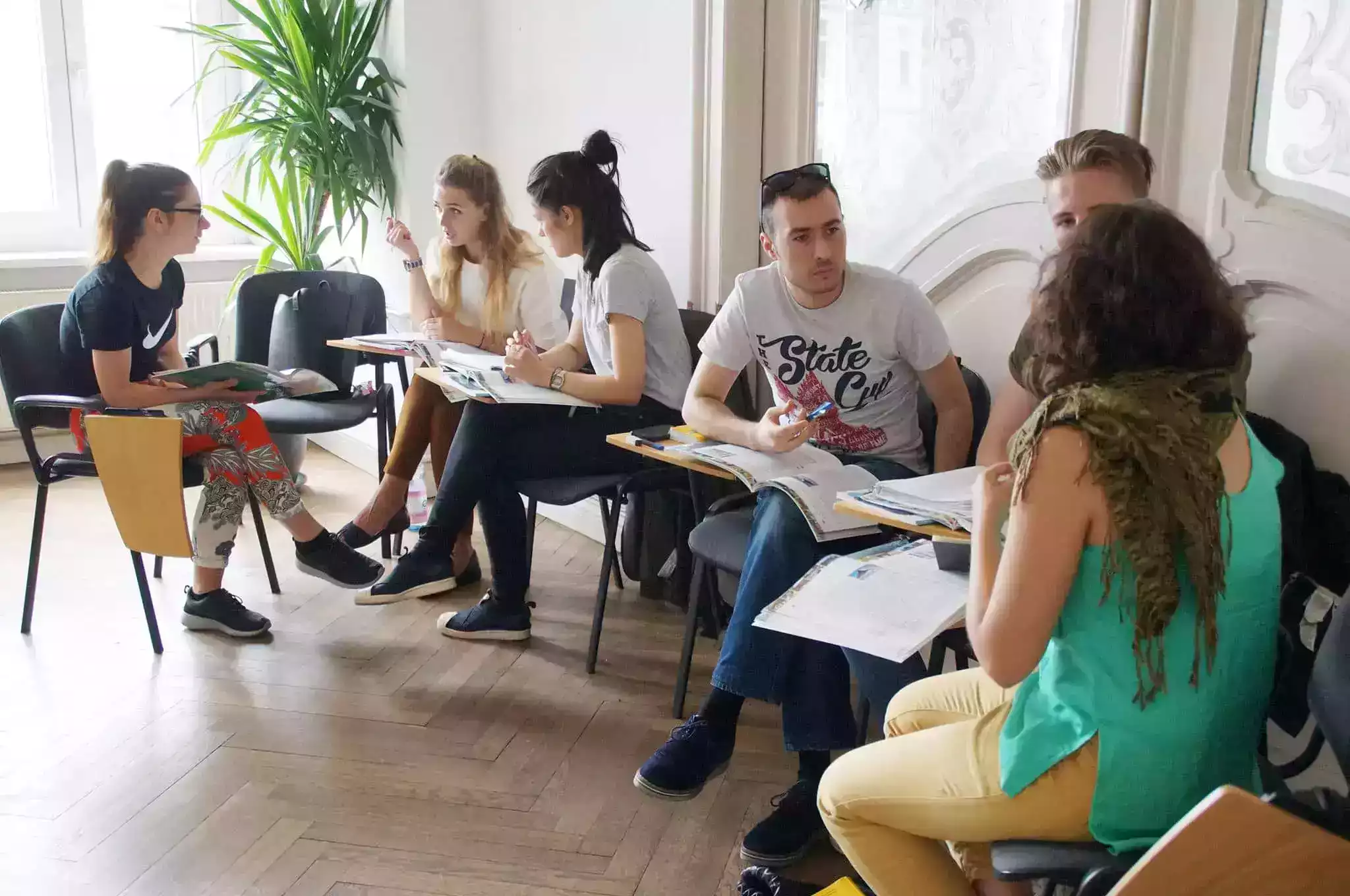The German language: as beautiful as awful
Have you ever tried to learn German on your own? Quite difficult isn’t it? It’s not surprising that you encounter difficulties when trying to teach yourself any language. DAS Akademie aims to support your goals and help you achieve your targets. Here are some fun facts, history, grammar rules and tips to master the German language – in short, all you need to know!
Let’s break some prejudices!
Many people believe that the German language is slowly dying out and that in a few years’ time nobody on earth will speak German.This is, in our opinion, wrong and here are the reasons why.
As you may have guessed, it is the official language in Germany. But German is spoken in so many more other countries and regions. It is also the official language in Austria, Switzerland , South Tyrol, Italy and Lichtenstein. It is one of the three official languages of Luxembourg and of the German-speaking community of Belgium and finally, is also the co-official language in the Opole Voivodeship in Poland. There are even regions in Brazil that have German as their official language!
In addition to this, the German language is one of the most spoken language in Europe, alongside English and Russian. On the global scale it’s ranked 11th overall. 16% of the European population speak German as their mother tongue. Almost 220 million people speak German today, 100 million of them being native speakers. This special distribution of the German language around the world is partly due to the German history and background.
So still thinking that learning German is useless? Check out our Intensive German courses in Berlin to understand to what extent German is useful and can be a plus point. If you would like to learn German but don’t have time during the day, we adapt ourselves to your schedule and offer you the possibility to follow Evening German Courses in Berlin.
A little bit of history of the German language
The German language went through several stages before reaching the syntactic form we know today.
It started to appear in Europe, in the early migration period. Until 1050, the Old High German was spoken in the highlands of southern Germany. It was mainly spoken German which contained a wide range of varying dialects, but the Old High German was not deemed a universal language, as a result of these differences. In the same way, speakers weren’t all sharing the same phonetics, pronunciation or even the same syntax.
After this, from 1050 to 1350, the Middle High German was preferred. This period marked the geographical expansion of the German territories. Germanic communities moved to a better and more peaceful living environment which slowly form the Germany that we see today. the language started to become more common and shared within these communities.
The last historical stage of the German language is called the Early New High German. This was mainly used in the court of nobles, for for literature and in official written documents. In these times, philosophy was highly recognised and seen as an extremely prestigious activity. This is the reason why, since this period, the German language is known for its famous philosophers, and, on a global scale, is seen as the language of thought.
Why are Anglicisms used in German?
First of all, as the name suggests, German is a Germanic language within the family of Indo-European languages. German is therefore a sister language to English, Frisian and Dutch. For example, the word ‘Nature’ in English is ‘natuur’ in Dutch, and ‘Natur’ in German. As covered and trained in our Intensive German Course, 60% of German vocabulary is similar to the English equivalents. Here, you can find more homophones in both languages:
In spite of those similarities, the German language can be a real challenge to overcome when you’re not aware of the basic grammar rules. This is why our Evening German Courses in Berlin are a considerable help thanks to our native teachers who know exactly how to explain these rules. However, we give you the main ones in the following paragraphs. You will be finding a few tips and tricks to help you get started!
A little bit of Grammar
No matter the goal, German is not the most complex language to learn, but there are some rules that must be followed:
- All nouns must be written with a capital letter
- There are 4 cases for nouns and pronouns (nominative, accusative, dative, genitive), with each one requiring a different adjective ending.
- Nouns can have one of three possible genders: masculine, feminine and neuter which are expressed by the articles: ‘der’, ‘die’ and ‘das’ respectively.
- Words can be singular or plural and each word has its own plural form (some common ones include -n, -en, -e…)
- Verbs can be strong or weak (irregular/regular)
- Vowels can have an ‘umlaut‘ which changes its initial pronunciation:
-
- a – ä pronounced [ε]
- o – ö pronounced [ø]
- u – ü pronounced [y] according to the IPA reference
-
- One of the more unique parts of the German language is the letter ‘ß’. German is the only language that uses this letter and it’s known as the Eszett. Don’t let this unknown letter scare you, you pronounce it just like [s], nut it just looks a bit fancier, and it basically means double ‘s’.
- The conjugated verb has to be in the second position in a basic sentence in the present tense: ‘Jeden Morgen mache ich Sportübungen und dann dusche ich’. When you use relative pronoun, the conjugated verb must be at the end: ‘Wenn ich keine Zeit habe, werde ich mit dem Bus fahren, um schneller zu sein’.



